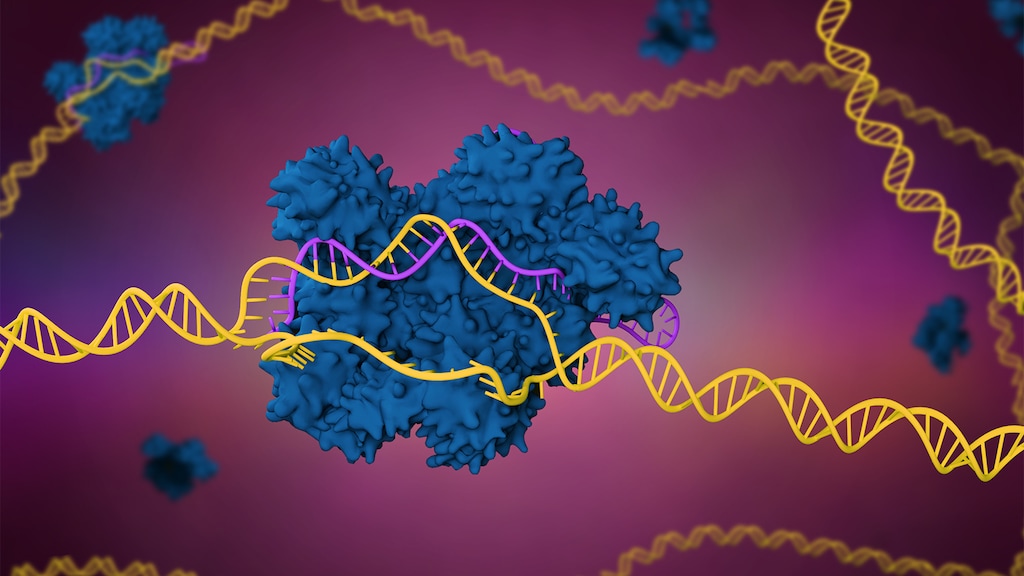PhD geneticist and molecular biologist Joel Eissenberg discussing CRISPR results. — “A watershed moment in modern medicine,” says genetics expert The promise of gene therapy may finally be realized. I’ve been a PhD geneticist and molecular biologist for nearly 40 years. During that time, I’ve seen the cloning of many human genes for which inherited diseases were known (e.g., cystic fibrosis, Huntingtons, Duchenne/Becker muscular dystrophy). Each paper reporting the gene cloning concluded with an obligatory paragraph noting that this opened the door to gene therapy. Sadly, the promised gene therapies have lagged decades behind the discovery and cloning of the affected genes. Instead, most of the progress since cloning has been in
Topics:
run75441 considers the following as important: CRISPR, Healthcare, Hot Topics, Joel Eissenberg, MedPage Today
This could be interesting, too:
NewDealdemocrat writes JOLTS revisions from Yesterday’s Report
Joel Eissenberg writes No Invading Allies Act
Bill Haskell writes Families Struggle Paying for Child Care While Working
NewDealdemocrat writes January JOLTS report: monthly increases, but significant downward revisions to 2024
PhD geneticist and molecular biologist Joel Eissenberg discussing CRISPR results.

— “A watershed moment in modern medicine,” says genetics expert
The promise of gene therapy may finally be realized.
I’ve been a PhD geneticist and molecular biologist for nearly 40 years. During that time, I’ve seen the cloning of many human genes for which inherited diseases were known (e.g., cystic fibrosis, Huntingtons, Duchenne/Becker muscular dystrophy). Each paper reporting the gene cloning concluded with an obligatory paragraph noting that this opened the door to gene therapy.
Sadly, the promised gene therapies have lagged decades behind the discovery and cloning of the affected genes. Instead, most of the progress since cloning has been in diagnostics: we could tell you whether or not you carried a lethal mutation and if so, when and how you would die. Many patients refused to be tested, since nothing could be done anyway.
The rate-limiting step in gene therapy turns out not to be cloning of the gene in question or understanding how and where it is expressed. The challenge has been to deliver the therapy to the proper tissue in therapeutic quantities.
CRISPR/Cas9 genome editing could finally be opening the door to the long-promised genetic therapeutics. There are dozens of clinical trials going on now using this transformative technology to conditions like inherited blindness and sickle cell disease. The latest surprise is that CRISPR genome therapy can be targeted to a solid organ by injection into peripheral blood circulation:
“The NTLA-2001 findings . . . are the “first-ever clinical data suggesting that we can precisely edit target cells within the body to treat genetic disease with a single intravenous infusion of CRISPR,” noted John Leonard, MD, president and CEO of Intellia Therapeutics, which co-sponsored the trial with Regeneron Pharmaceuticals. “Solving the challenge of targeted delivery of CRISPR-Cas9 to the liver, as we have with NTLA-2001, also unlocks the door to treating a wide array of other genetic diseases with our modular platform, and we intend to move quickly to advance and expand our pipeline,” Leonard said in a statement.”
In a First, CRISPR Infusion Edits Genes Directly in Humans, MedPage Today, Judy George
In a First, CRISPR Infusion Edits Genes Directly in Humans, MedPage Today, Judy George
